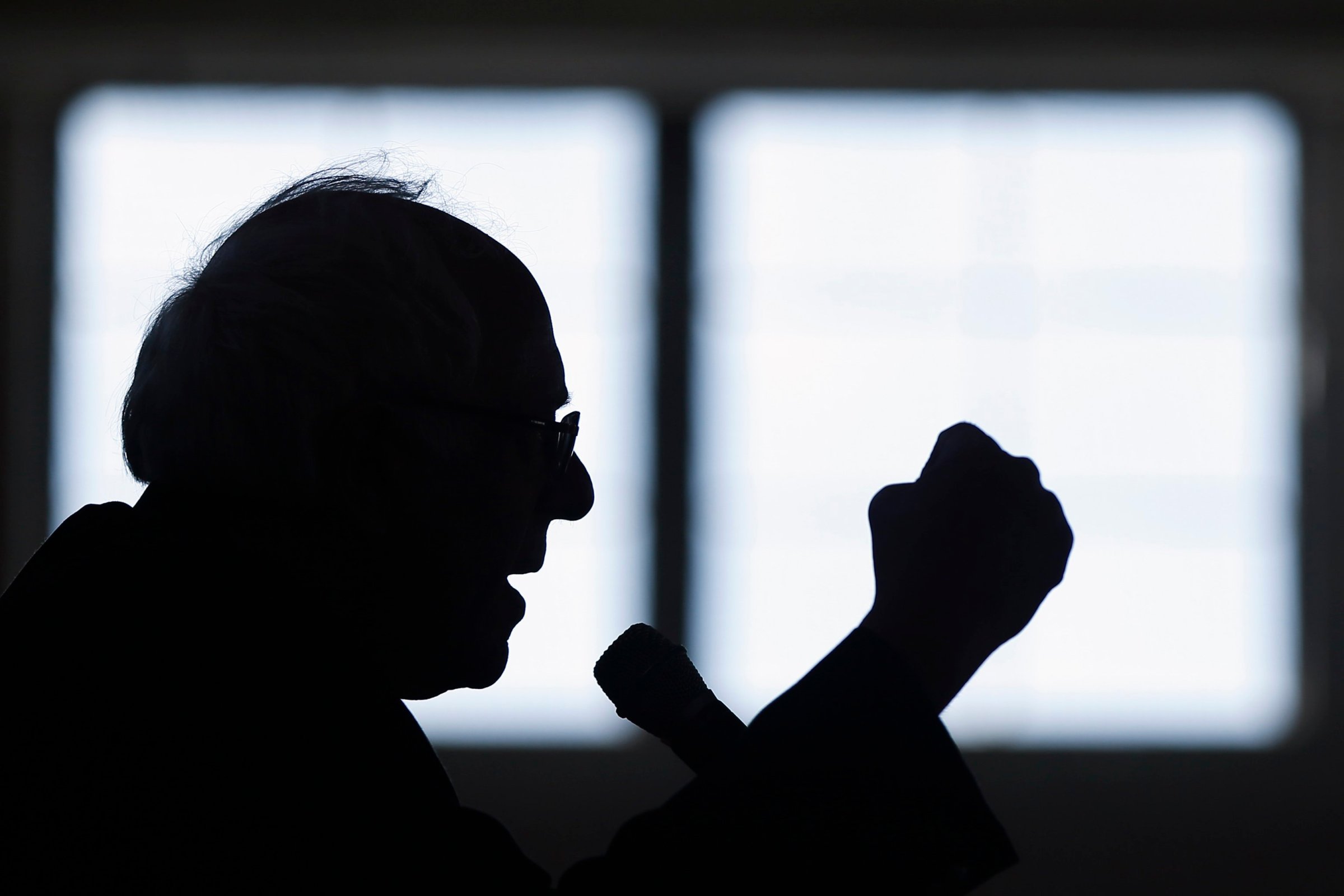
A specter is haunting the Democratic Party–the specter of socialism. A question is being asked, mostly by Republicans, but also by MSNBC’s Chris Matthews: What is the difference between a Democrat and a Socialist? Debbie Wasserman Schultz got it last July and, ever the robotic partisan, answered by saying the more important difference was between Democrats and Republicans. Senator Chuck Schumer said it depended on how you define the two, and then refused to define the two. And, most significantly, Hillary Clinton said, “Well, I can tell you what I am … I’m a progressive Democrat.”
Now this is not a difficult question to answer. Webster’s says socialism is “a social system or theory in which the government owns and controls the means of production.” Democrats tend to believe in free enterprise. They think government should regulate the means of production, not own it. They have taken great pains to separate themselves from socialism, which has always been a poison word in American politics. And yet, according to a recent Des Moines Register poll, 43% of Iowa Democrats describe themselves as socialists. What gives?
Well, they’re not really socialists. They’re European-style social democrats, who believe in a robust redistribution of wealth (“from each according to her ability, to each according to his need”) and government control of some of the means of production–like the health care system. The question of how much government should redistribute has been the central argument in American politics since the passage of the graduated income tax in 1913. Even the vast majority of Republicans believe in Social Security and Medicare.
So we’re talking about 50 shades of socialism here, but the gradations are still important. Take health care: Bernie Sanders is proposing socialized medicine, and Hillary Clinton isn’t. The majority of Americans get their health insurance from their employers through private insurance companies. It’s a clunky system, and Sanders wants to eliminate the middlemen–the insurance companies. Clinton believes government should help those who can’t get insurance through their employers–the poor (Medicaid), the working poor (Obamacare), the elderly (Medicare). There couldn’t be a clearer difference between liberalism and socialism, and yet Clinton refused to describe it that way in the Jan. 17 presidential debate; in fact, she empretzeled herself with a weak attack on Sanders, saying his plan would jeopardize the advances that Obamacare has brought. Her campaign has charged that Sanders would raise taxes on the middle class to pay for it. (True, but he’d eliminate insurance premiums–a net gain.) In fact, the best argument against Sanders’ health plan is the essential case against socialism–which Clinton’s supporters raised after the debate–and its next of kin, redistributionism: it dampens incentives, which dampens creativity, which leads to poverty. It is the difference between the “fairer” but more lugubrious European economies and our riskier but more dynamic way of doing business. At their best, Democrats are like European conservatives, leaning toward more fairness and wary of government control.
Sanders is in favor of some very good things, like breaking up the big banks. (There are even fastidious conservatives who agree with him because of the “moral hazard” involved.) His notion of a tax on hyperspeculative Wall Street gaming would be a more effective reform than the bramble of incomprehensible regulations comprised in the Dodd-Frank bill. His support for huge infrastructure spending is good too; it would make our free market more efficient and provide some nice muscle work for less-educated laborers. But each of those ideas is more “progressive” than “socialist.”
It is still far more likely that Clinton wins the Democratic nomination than Sanders–but even Bernie should worry about his party strolling into the general election unwilling to distinguish itself from socialism. Indeed, the Democrats should worry about their attachment to big government, which, in America, has come to mean more unaccountable bureaucracy, like the Department of Veterans Affairs; more inefficiency, like the weird tangle of federal job-training programs, each more irrelevant than the last; and more perverse incentives, like welfare programs that ask for nothing–no personal responsibility–in return from their recipients. Big government is the way I was treated at the post office this afternoon.
So we have this strange election: Republicans race toward know-nothing nativism, and Democrats stumble toward socialism. Both are reactionary, discredited ideas. I want my country back!
More Must-Reads from TIME
- Donald Trump Is TIME's 2024 Person of the Year
- Why We Chose Trump as Person of the Year
- Is Intermittent Fasting Good or Bad for You?
- The 100 Must-Read Books of 2024
- The 20 Best Christmas TV Episodes
- Column: If Optimism Feels Ridiculous Now, Try Hope
- The Future of Climate Action Is Trade Policy
- Merle Bombardieri Is Helping People Make the Baby Decision
Contact us at letters@time.com